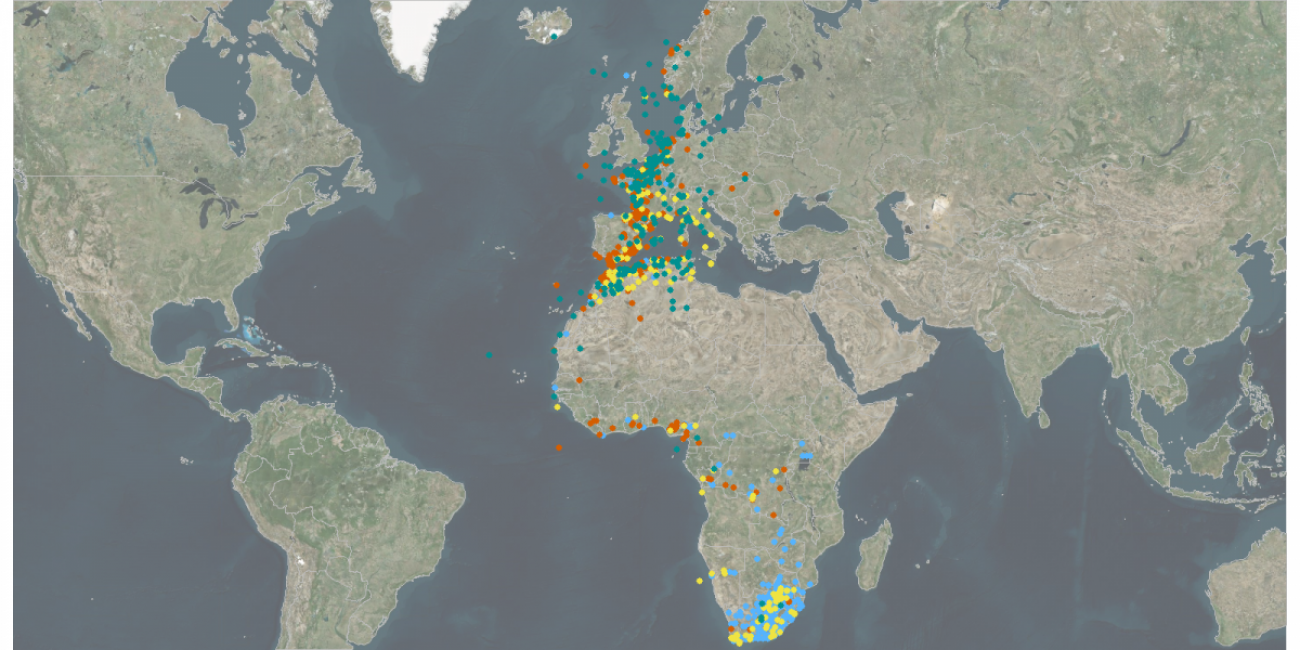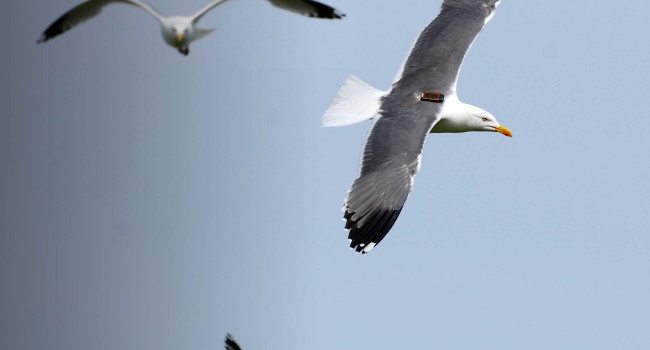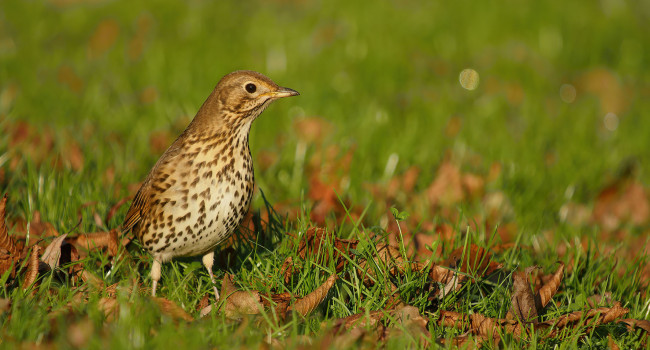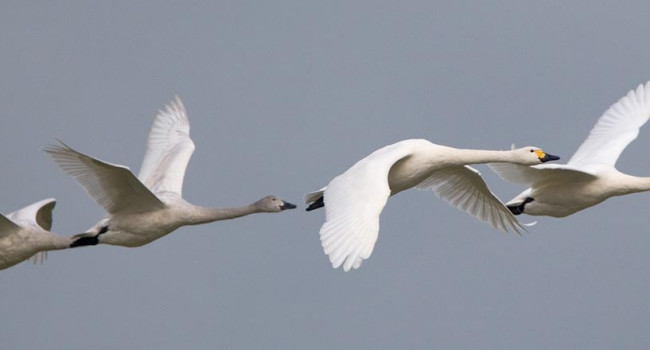Movement
Using ringing data to understand bird movements
Currently we show a map of where birds ringed in Britain and Ireland have been recovered overseas, or where foreign-ringed birds recovered in Britain and Ireland were originally ringed.
There is also a link to the Online Ringing Report which gives further information on numbers of birds ringed, significant movements, and information on longevity.

The map above shows the foreign location of Swallows birds ringed or recovered in Britain and Ireland. The dots are coloured according to season. For example, light blue dots show locations of birds ringed or recovered in winter. These records are mostly clustered in southern Africa where Swallows that breed in Britain and Ireland spend the winter.
Using birdwatchers' records to map bird movements
In addition to direct observations of bird movements, we can also infer the timing and spread of bird movements using observations of migratory birds.
For many species, there is a link to the EuroBirdPortal viewer which shows a collation of birdwatchers' records from across Europe, showing how the spread of records reveals the arrival and departure of migratory birds on a continental scale.
Records (data) that people submit to BirdTrack contribute to EuroBirdPortal to ensure the maps are up to date for Britain and Ireland.






Share this page